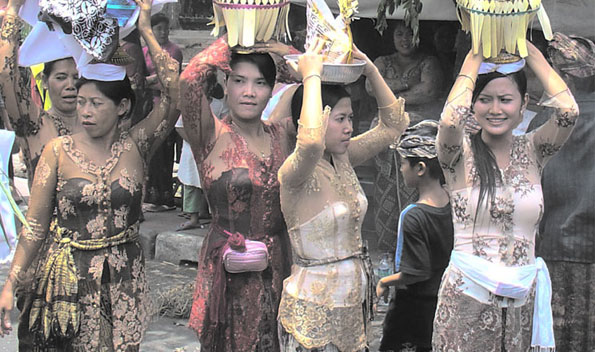 Dr. Cathirose Petrone is to medicine what Johnny Cash is to country music: smoothly yet vigorously original, passionately forthcoming, and persistently clad in black wear, embroidered and shrunken to meet her tropical Balinese setting, of course. A naturopath and psychotherapist from Ubud, now building a program for those seeking recovery and holistic health, she has a professional record worthy of being thematized into a beatific mosaic inside a Roman cathedral. Extraordinarily equable, she has no room for self-serving in her practice; her strength and focus begin and end with her patients in mind and soul.
Dr. Cathirose Petrone is to medicine what Johnny Cash is to country music: smoothly yet vigorously original, passionately forthcoming, and persistently clad in black wear, embroidered and shrunken to meet her tropical Balinese setting, of course. A naturopath and psychotherapist from Ubud, now building a program for those seeking recovery and holistic health, she has a professional record worthy of being thematized into a beatific mosaic inside a Roman cathedral. Extraordinarily equable, she has no room for self-serving in her practice; her strength and focus begin and end with her patients in mind and soul.
She’s been wholly forged into her vocation; a special phenomenon in any professional sphere or era. Twenty years ago in Hawaii, her naturopathic clinical internship instructor made her peel mangos without breaking the skin in two, and had her forty-five kilos routinely lug around a bulky hose to water the vast gardens. The point was to make her fully present when consulting her patients and the nature of their diseases. And she bites off exactly what she can chew. She gives me some Jersey-style ‘tough love’, then mollifies the loving abrasions with her novel, perhaps atypical, approach to healing.
“Everybody who’s alive has cancer in a sense,” her eyes wide and true, about five centimetres from my face. “We all have abnormal cells capable of growing uncontrollably. But the body deals with them until it doesn’t anymore.”
We began our conversations on her purple patio by discussing the popular symbolism of particular terms, here in our context the dubious character of the word cancer. Each concept of cancer has different representations for each person; thus, when cancer is discussed people are often talking about different things, she tells me. “Cancer is a term that refers to many different diseases, over 150, granted they have the common thread that cells with normal growth start to become uncontrolled.”
Without pointing any gnarled fingers, she reveals the dim result, that the public suffers from an umbrella term instead of the information it needs to prevent the deadly disease, preventions which she says are overwhelmingly possible in different types of cancer. For example, smoking’s connection to lung cancer.
Moving beyond terms, she is more interested in what really, actively sparks this uncontrolled growth of cells that run beyond the body’s regulatory power. For Dr. Cathirose, it is imperative that we not only gain a sense of mindfulness but that we utilize it to make measurable choices—choices whereby we weigh all apparent options and conditions, internally orchestrated and externally introduced—when it comes to our very own health.
She also has a bone to pick with those in her field who stake claims of universal remedies without irrefutable verifications. But no one offers any treatment with substantiated confidence. This is why patient trust in their treatments is so utterly vital; this is where mindfulness ought to come into full play. When therapy promoters don’t harness enough evidence, they rashly exercise ‘confirmation bias’ and find all the data available to complacently confirm their own claims without philosophically weighing both sides of the issue and procedures evenly. Be you practitioner or patient, “To be able to say ‘I don’t know’ is scary. It’s hard to live that way,” she says.
Aiding the terminally ill for over twenty years has delicately refined Dr. Cathirose’s tough New Jersey tongue. Her take-home message? Whether we sound the alarm, cue the drummer, strum the eternal lyre, or just listen in silence, it’s forcefully all the same. It sounds like this: “I don’t know, and nobody else knows. We know a few things. Let’s look at what we do know.”
We do know that carcinogens are causal as with some radiations. But since the body works uniquely and reactively in what Dr. Cathirose refers to as ‘ratios’, that is, the introduction or substitution of nutrients affecting other ratios of other body parts in different ways, she is carefully hesitant to grant any therapy principal status. Therefore, when we speak about antioxidants or cruciferous veggies as malignant preventers, when we consider chemotherapy or Gerson’s dietic therapy, we must boldly look over and face what Dr. Cathirose faces everyday: the unconfirmed evidence and terminally fragile people.
At this point in our discussion the classic question of mind versus matter arose. “So, how much of it is mind over matter?” I queried. Dr. Cathirose’s response was swiftly ready.
“Fifty percent of what we would call ‘beneficial results’ are significantly due to placebo effect,” she said. She rendered the example of antidepressants and claimed that between pharmaceuticals, St. John’s Wart, and placebos there marks only a 4% difference between their effectiveness to deal positive user results. After hearing this, I was less surprised and more intrigued to hear about her curiosities and philosophy of healing.
Dr. Cathirose is a masterful synthesizer of data and mindfulness. Her approach is ‘integrative scientific’—a smart combination of allopathic and complementary therapies, and her work judiciously blends her knowledge of Western naturopathy and psycho-investigations with an Eastern posture of mindfulness associated with karmic law and downright commonsense. As a result, her patients receive a sober approach of the most efficacious kind: a rare nononsense experience steeped in cultivating patient-mindfulness so patients can take express control of their health while very pertinently utilizing academic essentials from the Western sphere.
She provides a clinician’s guide to her assessments in her notable book Mindfulness and Healing. In it, she says that how we address symptoms and how we heal is not the same. “It’s critical to distinguish the two,” she says. “It’s critical to ask: ‘What are we doing here?’” After a patient accepts the apparent facts of their illness, they can deliberately move on with Dr. Cathirose from there. With vigorous presence, she looks through to me: “You’ve accepted. Now what do you want to do about it?” she thrusts and probes, somehow, in the most devotedly tender way.
For more information on Dr. Cathirose please visit: www.wholisticrecoveryinternational.com




